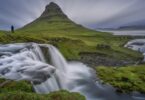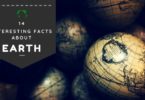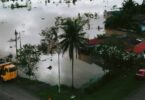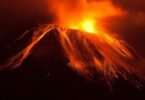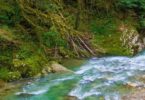Simple questions about The Sun with Answers:
Who first discovered that the Earth revolves around the Sun
(a) Newton
(b) Dalton
(c) Copernicus
(d) Einstein
The source of the Sun’s energy is
(a) Burning of hydrogen
(b) Fission reactions involving hydrogen
(c) Fusion reactions involving hydrogen
(d) Some other source
The Earth is the largest distance from the Sun (Apehelton).
(a) June 21st
(b) January 3rd
(c) July 4th
(d) September 23rd
Sun radiates continuously and maintains its brightness because
(a) Helium is converted into iron in its core
(b) Of fusion of hydrogen nuclei into helium
(c) Fusion of helium in hydrogen
(d) Burning of carbon in its core
The process by which energy is generated In’ the sun is the
(a) fusion of Uranium
(b) fusion of Helium
(c) fusion of Hydrogen
Which of the following is the largest compounding of Solar energy
(a) Bacteria
(b) Protozoa
(c) Fungus
(d) Green plants
Related: air pollution test questions
An eclipse of the Sun takes place:
(a) When the Moon passes between the Sun and the Earth
(b) Once every five years
(c) When the Moon is full
(d) When the Earth comes between the Sun and the Moon
The planet nearest to the Sun is:
(a) Earth
(b) Mercury
(c) Mars
(d) Venus
The light from the Sun reaches the Earth in about
(a) 8 seconds
(b) 8 minutes
(c) 10 seconds
(d) 10 minutes
The Earth receives solar energy through
(a) conduction
(b) radiation
(c) convection
(d) refraction
Solar eclipse occurs when
(a) The Moon does not lie on the line joining the Sun and the Earth
(b) The Moon comes between the Sun and the Earth
(c) the Sun comes between the Moon and the Earth
(d) the Earth comes between the Moon and the Sun
Related: quiz on Capital cities of the World
What are the eight planets’ fixed paths around the Sun called?
(a) Geoid
(b) Circumference
(c) Orbit
(d) Perimeter
When the Moon completely covers the Sun, it is known as
(a) the Ant umbra
(b) the Umbra
(c) the Penumbra
The distance between the Sun and the Earth
(a) The depth of the ocean
(b) The radius of the Earth
(c) The radius of the Jupiter
(d) None of these
The nuclear fuel in the Sun is
(a) Helium
(b) Uranium
(c) Hydrogen
(d) Oxygen
Comets revolve around the
(a) Earth
(b) Venus
(c) Sun
(d) Jupiter
Related: quiz on Space and Universe with answers
What is the shape of the orbit of the Earth going around the Sun?
(a) Circular
(b) Elliptical
(c) Spherical
(d) Irregular
Storms of gases are visible in the chromosphere of the Sun during
(a) Cyclones
(b) Anticyclones
(c) Lunar eclipse
(d) Solar eclipse
We get solar energy from:
(a) Moon
(b) Sea
(c) Sun
(d) Air
The movement of the Earth around the Sun in a fixed path or orbit is called __
(a) Revolution
(b) Rotation
(c) Translation
(d) Illumination
Name the process of production of energy in the Sun
(a) Radioactivity
(b) Nuclear fission
(c) Ionization
(d) Nuclear fusion
The asteroids revolve around the Sun in between:
(a) Earth and Mars
(b) Mars and Jupiter
(c) Jupiter and Saturn
(d) Saturn and Uranus
Related: biggest Stock markets in the World
The Sun is an example of
(a) Star
(b) Satellite
(c) Planet
(d) Meteoroid
The outermost layer of the Sun is called
(a) Lithosphere
(b) Chromosphere
(c) Photosphere
(d) Corona
Sun is a:
(a) star
(b) planet
(c) galaxy
(d) comet
Sources of energy in the Sun are:
(a) excitation of atoms
(b) collision of atoms
(c) breaking of heavy nuclei
(d) combination of light nuclei
Dark patches present in the photosphere of the Sun are called:
(a) sunspots
(b) prominences
(c) rings
(d) fluorescence
When does the Sun shine vertically on the Equator?
(a) Throughout the year
(b) For six months
(c) Twice a year
(d) Once a year
Maximum solar energy may be trapped by
(a) Growing grasses
(b) Planting trees
(c) Growing algae in large water bodies
(d) More cultivation of crop plants

